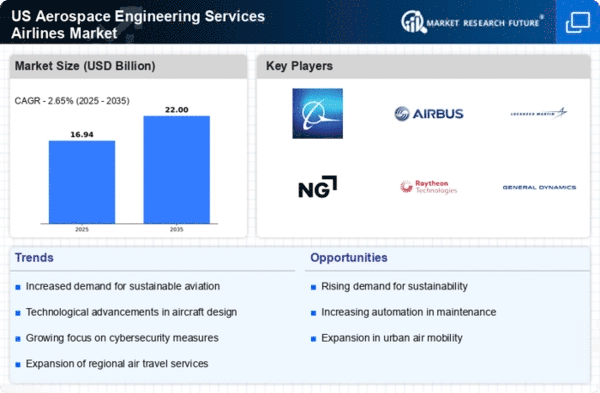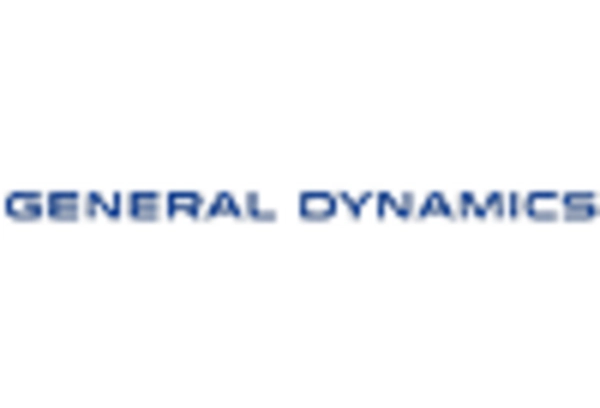US Aerospace Engineering Services Airlines Market Summary
As per Market Research Future analysis, the US aerospace engineering-services-airlines market size was estimated at 16.5 USD Billion in 2024. The US aerospace engineering-services-airlines market is projected to grow from 16.94 USD Billion in 2025 to 22.0 USD Billion by 2035, exhibiting a compound annual growth rate (CAGR) of 2.6% during the forecast period 2025 - 2035
Key Market Trends & Highlights
The US aerospace engineering-services-airlines market is poised for growth driven by sustainability and technological advancements.
- Sustainability initiatives are increasingly shaping the strategies of major airlines and aerospace companies.
- Digital transformation is enhancing operational efficiency and customer experience across the aerospace sector.
- Regulatory adaptations are becoming essential as the industry navigates evolving safety and environmental standards.
- Technological advancements in aerospace engineering and increased demand for air travel are key drivers propelling market growth.
Market Size & Forecast
| 2024 Market Size | 16.5 (USD Billion) |
| 2035 Market Size | 22.0 (USD Billion) |
| CAGR (2025 - 2035) | 2.65% |
Major Players
Boeing (US), Airbus (FR), Lockheed Martin (US), Northrop Grumman (US), Raytheon Technologies (US), General Dynamics (US), Safran (FR), Thales (FR), Rolls-Royce (GB)
















